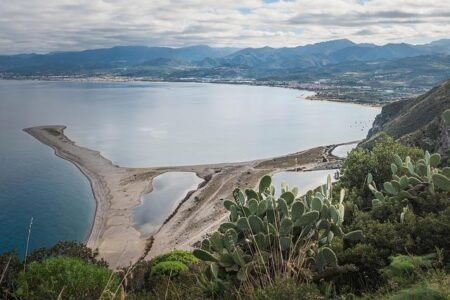Italy finds itself at a crossroads as Prime Minister Giorgia Meloni’s controversial “anti-protest” law sparks fierce debate across the nation. Intended to impose stricter regulations on public demonstrations, the legislation has ignited a sharp divide between supporters who argue it is necessary for maintaining public order and critics who warn it threatens fundamental democratic freedoms. This article explores the origins, key provisions, and the widespread reactions provoked by the law, revealing the deep societal rifts it has exposed within Italy.
Giorgia Meloni’s Anti Protest Law Sparks Nationwide Debate Over Civil Liberties
The newly introduced legislation aimed at curbing protest activities has set off a storm of controversy across Italy. Supporters of the bill, primarily from Giorgia Meloni’s party, argue that it is necessary to maintain public order and protect citizens from violent demonstrations that have, in recent years, disrupted daily life and economic activities. They emphasize that the law introduces stricter regulations on assembly and protest permits, increased penalties for those engaging in unlawful demonstrations, and enhanced powers for law enforcement agencies to intervene swiftly.
Critics, however, warn that the law risks undermining fundamental civil liberties and democratic rights by imposing excessive restrictions on freedom of expression and peaceful assembly. Human rights organizations and opposition leaders have expressed concern over potential abuses and the vague definitions within the bill that could lead to arbitrary enforcement. Key points of contention include:
- Ambiguous language that could criminalize legitimate protest activities.
- Increased surveillance measures that raise privacy concerns.
- Hefty fines and jail terms for protesters, which some call disproportionate.
| Aspect | Government Stance | Opposition Viewpoint |
|---|---|---|
| Public Order | Essential for safety and economic stability | Used to suppress dissent and silence critics |
| Penalties | Deterrent against violence and vandalism | Excessive and restrict peaceful protest |
| Law Enforcement Powers | Necessary for rapid response | Enable potential abuses of power |
Impact of the Legislation on Italy’s Right to Assemble and Freedom of Expression
The recent legislation spearheaded by Prime Minister Giorgia Meloni has ignited intense debate across Italy, as critics contend it imposes stringent limitations on the fundamental rights of assembly and free speech. By introducing harsher penalties for unauthorized protests and broadening police powers to preempt demonstrations deemed disruptive, the law challenges the traditional framework supporting civic expression. Advocates argue this measure aims to ensure public order and safety, especially in urban centers prone to unrest, but opponents warn it could stifle dissent and marginalize grassroots activism.
- Expanded police authority: Allowing officers to dismantle protests before they begin
- Increased fines and jail terms: Targeting organizers and participants of unauthorized gatherings
- Restrictions on protest routes: Limiting demonstrations near key government buildings and infrastructure
| Aspect | Before the Law | After the Law |
|---|---|---|
| Permit Requirement | Advised but not mandatory | Mandatory for all public gatherings |
| Police Intervention | Reactive | Proactive powers granted |
| Penalties | Fines only | Fines and imprisonment |
The law’s impact extends beyond legislative text; it resonates deeply within Italy’s social fabric. Many activists perceive it as an erosion of democratic freedoms, fostering a climate of intimidation that may deter citizens from voicing dissent. Meanwhile, supporters maintain it is a necessary step to curb violent protests that have occasionally disrupted public life. This polarization encapsulates the broader cultural tension between security imperatives and the preservation of civil liberties in contemporary Italy.
Experts Call for Balanced Approach to Ensure Security Without Suppressing Public Dissent
Legal experts and civil society advocates stress the importance of maintaining a delicate equilibrium between ensuring national security and respecting citizens’ fundamental rights to protest. While the government argues that recent legislation aims to curb violent or disruptive demonstrations, critics warn of potential overreach that might stifle legitimate public dissent. Concerns include:
- Broad definitions of banned protest activities
- Increased police powers without adequate oversight
- Chilling effects on freedom of assembly and speech
Several human rights organizations urge lawmakers to revisit key provisions, advocating for safeguards that protect peaceful expression while effectively addressing public safety. This includes transparent mechanisms for law enforcement accountability and clearer guidelines to differentiate between lawful protests and unlawful behavior, ensuring that democratic dialogue is not compromised in the pursuit of order.
| Aspect | Supporters’ View | Critics’ Concerns |
|---|---|---|
| Public Safety | Essential for preventing chaos | Could lead to excessive control |
| Freedom of Expression | Should be respected | At risk under vague restrictions |
| Law Enforcement Powers | Needed for quick response | Potential for misuse and abuse |
Key Takeaways
As Italy grapples with the implications of Giorgia Meloni’s contentious ‘anti-protest’ law, the nation finds itself deeply divided over the balance between security and civil liberties. While proponents hail the legislation as a necessary step to curb unrest and maintain public order, critics warn it threatens the fundamental right to peaceful protest and risks stifling democratic dissent. As demonstrations continue and debates intensify, Italy’s political and social landscape remains unsettled, underscoring the complex challenges facing the country’s leadership in navigating security concerns without undermining democratic freedoms.




